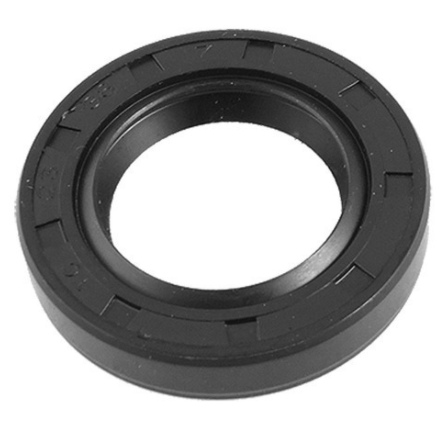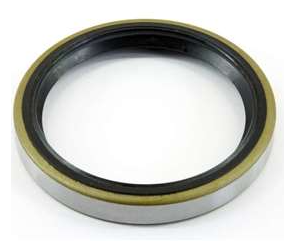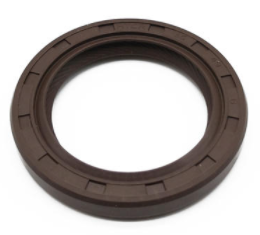A Guide to Select Oil Seals for Your Industrial Application
Dec 17, 2021 Industrial seals | Oil Seals
An oil seal is a type of seal used in various industrial equipment to close the gap between its moving and non-moving components. These oil seals help prevent lubricant leakage at high pressures and block foreign components from entering the machinery. With such an important role to play, these oil seals must be chosen carefully. This post discusses the types of oil seals and also guides you through the important factors to choose an appropriate oil seal for your industry.
.png)
Types of Oil Seals – Based on Materials
There is a wide range of seals to select according to the type of material. Some of the types of oil seals are as follows:

Rubber seals are the most common types of sealing solutions preferred for tight sealing. Rubber seals are corrosion resistant and are used in both high and low-pressure applications. Nitrile, polyacrylate, Viton®, silicone, and polytetrafluoroethylene are a few common types of rubber materials used for this purpose. Each material possesses the typical capability, so, you must choose the rubber material carefully for your application.

These seals feature stamped metal cases with an elastomer bonded sealing lip. Carbon steel is the metal used for making the case. The case protects the lip seal during installation. Metal encased seals are generally used for high-pressure or high-temperature applications.

These seals possess good running properties and are generally preferred for abrasive applications. The seals are usually used for shafts that possess surface roughness higher than rubber seals.
7 Important Factors to Consider When Choosing Oil Seals
With varieties of seals available, choosing the right seal for application can be a daunting task. The following factors will help make the right selection.
- Lubricant: If choosing lubricated seals ensure they are continuously lubricated with oil that possesses appropriate viscosity required for the application and the lubricant is compatible with the elastomer material of seals.
- Shaft Finishing: A good surface finishing of shafts gives a very effective oil sealing. The ground or polished shafts with concentric finish marks provide the best sealing that prevents leakage even during the shaft rotations. Hence, it is important to make sure that the shaft finishing is well maintained.
- Shaft and Bore Tolerance: The seals must be strong enough to tolerate the pressure and vibrations caused by shaft and bores. The authenticity of metal and elastomer material is something that makes the shaft and bore tolerance possible. Therefore, check if the material meets these requirements before buying the seal.
- Shaft Hardness: The life expectancy of a seal is measured on the basis of the hardness of its shaft. A shaft must possess a Rockwell hardness of 30 or above. When a seal is exposed to abrasive contaminants or high pressure, this RC hardness protects the seal from getting damaged. Hence, it is an essential factor.
- Temperature: The temperature of the process should not exceed the temperature of the seal elastomer. Any increase or decrease in temperature may affect the sealing capability of the seal. Hence, it is an important point to be considered.
- Pressure: Most seals are designed for applications where they may be subjected to pressures as low as 8 psi. However, if they are subjected to even low pressures then pressure relief must be ensured.
- Shaft Speed: Shaft speed depends on many factors including shaft finish, its concentricity, the type of liquid being transferred, and the type of oil seal material. So each of these factors must be considered to achieve a maximum shaft speed.

In addition to the above-given factors, sourcing high-quality seals from a trusted manufacturer are quite important. SSP Seals provides high-quality
oil seals for industrial applications in automotive, oil and energy, and other sectors. The company can provide seals made of a wide range of materials including PTFE, Viton, Silicone, Nitrile, and so on.
Related Post
 sales:
gm@sspseals.com
Toll Free: +1-888-238-SEAL Request A Quote
sales:
gm@sspseals.com
Toll Free: +1-888-238-SEAL Request A Quote
.png)



